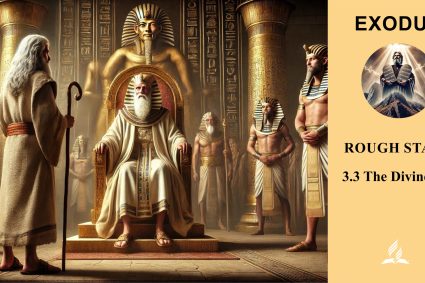

The text about Paul on the Areopagus from the Acts of the Apostles 17:18–21 emphasizes the apostle’s ability to adapt to different contexts and intelligently preach the Gospel. The commentary highlights that wherever Paul was, he consistently proclaimed the Gospel in accordance with his divine mission.
The reactions of the pagans on the marketplace in Athens are described as diverse. The mention of “foreign gods” indicates that Paul attracted people’s attention. The transition to the Areopagus, a place for legal and religious matters, shows that Paul’s message was considered so important that they wanted to give him a hearing, even if it wasn’t necessarily a trial.
Luke’s emphasis on the fact that the Athenians enjoyed discussing and listening to new ideas is interpreted as an acknowledgment of their intellectual curiosity. The commentary suggests that Luke is not accusing the Athenians of laziness but rather pointing to their experience as seasoned thinkers and debaters.
Particularly interesting is the observation that although Paul expected the Holy Spirit to use his formal education under Gamaliel in Athens, he was, in reality, further educated on the streets of Athens. The text emphasizes how the apostle, with a deep knowledge of Athenian art, literature, and religion, astounded the “intellectuals” among his listeners.
Overall, Paul is portrayed as a skillful preacher who not only preached the Gospel but was also able to adapt to the cultural and intellectual backgrounds of his audience. This provides an inspiring lesson for modern believers who want to share the Gospel in various contexts.
After Paul’s experience in Athens with these pagans and philosophers, he wrote to the Corinthians: “For I decided to know nothing among you except Jesus Christ, and him crucified” (1 Corinthians 2:2). What lesson can we draw from this, that Christ must be at the center of our message, regardless of whom we are preaching to?
The lesson that can be drawn from Paul’s statement in 1 Corinthians 2:2 emphasizes the central importance of Jesus Christ in the Christian message, regardless of the audience being addressed. Here are some key aspects of this lesson:
-
Christ as the Center: The message of Jesus Christ and His crucifixion should be at the core of our proclamation. Paul makes it clear that he desired to know nothing else among the Corinthians except Jesus Christ, the Crucified. This underscores the fundamental significance of the redemptive work on the cross for the Christian message.
-
Universality of the Message: Paul’s statement underscores the universality of the message of Christ. Regardless of the cultural, intellectual, or religious background of the listeners, Christ remains the central focus. This demonstrates that the message of the Gospel is relevant to all people.
-
Abandoning Human Wisdom: Paul highlights that he consciously chose not to speak extensively about worldly wisdom or philosophical speculations. This doesn’t mean that intellectual engagement is unimportant, but it should not displace the central place of Christ in the message.
-
Power of the Cross: Focusing on Christ, the Crucified, emphasizes the transformative power of the cross. It is not merely a historical event but the heart of the Christian doctrine of redemption, love, and grace.
-
Adaptability of the Message: Regardless of whether Paul was preaching to pagans, philosophers, or other groups, the message remained essentially the same. This teaches us that the central message of the Gospel does not change, even though the manner of presentation can be adapted to consider the needs and contexts of our listeners.
In summary, Paul’s lesson reminds us that the power of the Gospel lies in the person and work of Christ. When we preach, it is crucial that Christ is at the center, and the message of His cross forms the foundation of our proclamation.
(Visited 28 times, 1 visits today)




















